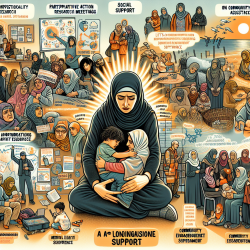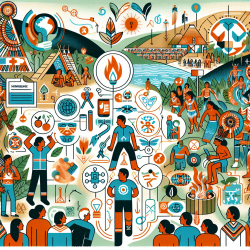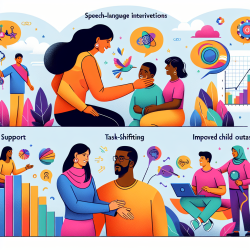Introduction
As a practitioner focused on creating positive outcomes for children, understanding the challenges faced by refugee families is crucial. The research article titled "Use of Participatory Action Research to Support Syrian Refugee Mothers in the Resettlement Period in Canada: A Longitudinal Study" offers valuable insights into the experiences of Syrian refugee mothers in Canada. This study highlights the importance of culturally appropriate support services and the role of community-based participatory action research (PAR) in improving the resettlement experience.
Key Findings
The study identifies six major themes that emerged from the data analysis, focusing on the migration journey, integrated care pathways, social determinants of health, and the impacts of the COVID-19 pandemic. Notably, the research emphasizes the strength-based capabilities of Syrian mothers and the experiences of peer research assistants (PRAs).
Implications for Practitioners
- Understanding Migration Challenges: Practitioners can better support refugee families by acknowledging the multifaceted challenges they face during migration, including mental health risks and social isolation.
- Promoting Integrated Care: Holistic healthcare approaches that consider emotional and physical health are essential. Practitioners should advocate for accessible healthcare services that include interpreter support.
- Addressing Social Determinants: Factors such as language barriers, gender roles, and housing stability significantly impact refugee health. Practitioners can work towards creating supportive environments that address these determinants.
- Responding to COVID-19 Impacts: The pandemic has exacerbated social isolation and access to services. Practitioners should explore innovative ways to provide support and maintain connections with refugee families.
Encouraging Further Research
While this study provides critical insights, there is a need for further research to explore the long-term impacts of resettlement on refugee families. Practitioners are encouraged to engage in participatory action research to continue developing strategies that promote the well-being of refugee mothers and their children.
Conclusion
The findings from this study underscore the importance of culturally sensitive and accessible support services for Syrian refugee mothers. By integrating the principles of participatory action research, practitioners can contribute to more effective resettlement strategies that enhance the quality of life for refugee families.
To read the original research paper, please follow this link: Use of participatory action research to support Syrian refugee mothers in the resettlement period in Canada: A longitudinal study.










